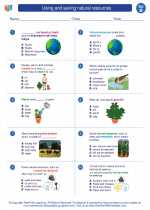Exothermic Reactions
An exothermic reaction is a chemical reaction that releases energy in the form of heat. During an exothermic reaction, the reactants undergo a chemical change and release heat to the surroundings. This type of reaction is characterized by a rise in temperature.
Examples of Exothermic Reactions
- Combustion of fuels such as wood, coal, and gasoline
- Oxidation of iron
- Neutralization reactions between acids and bases
- Many types of polymerization reactions
Understanding Exothermic Reactions
Exothermic reactions involve the breaking of chemical bonds in the reactants and the formation of new bonds in the products. The overall energy change is negative, indicating that the reactants have a higher energy content than the products. This energy difference is released as heat, causing the surroundings to warm up.
Impact of Exothermic Reactions
Exothermic reactions are important in everyday life and industry. They are used in various processes such as energy production, manufacturing, and cooking. Understanding the principles of exothermic reactions is essential for controlling and optimizing these processes.
Study Guide for Exothermic Reactions
.◂Science Worksheets and Study Guides Second Grade. Using and saving natural resources

 Worksheet/Answer key
Worksheet/Answer key
 Worksheet/Answer key
Worksheet/Answer key
 Worksheet/Answer key
Worksheet/Answer key
 Vocabulary/Answer key
Vocabulary/Answer key
 Vocabulary/Answer key
Vocabulary/Answer key
